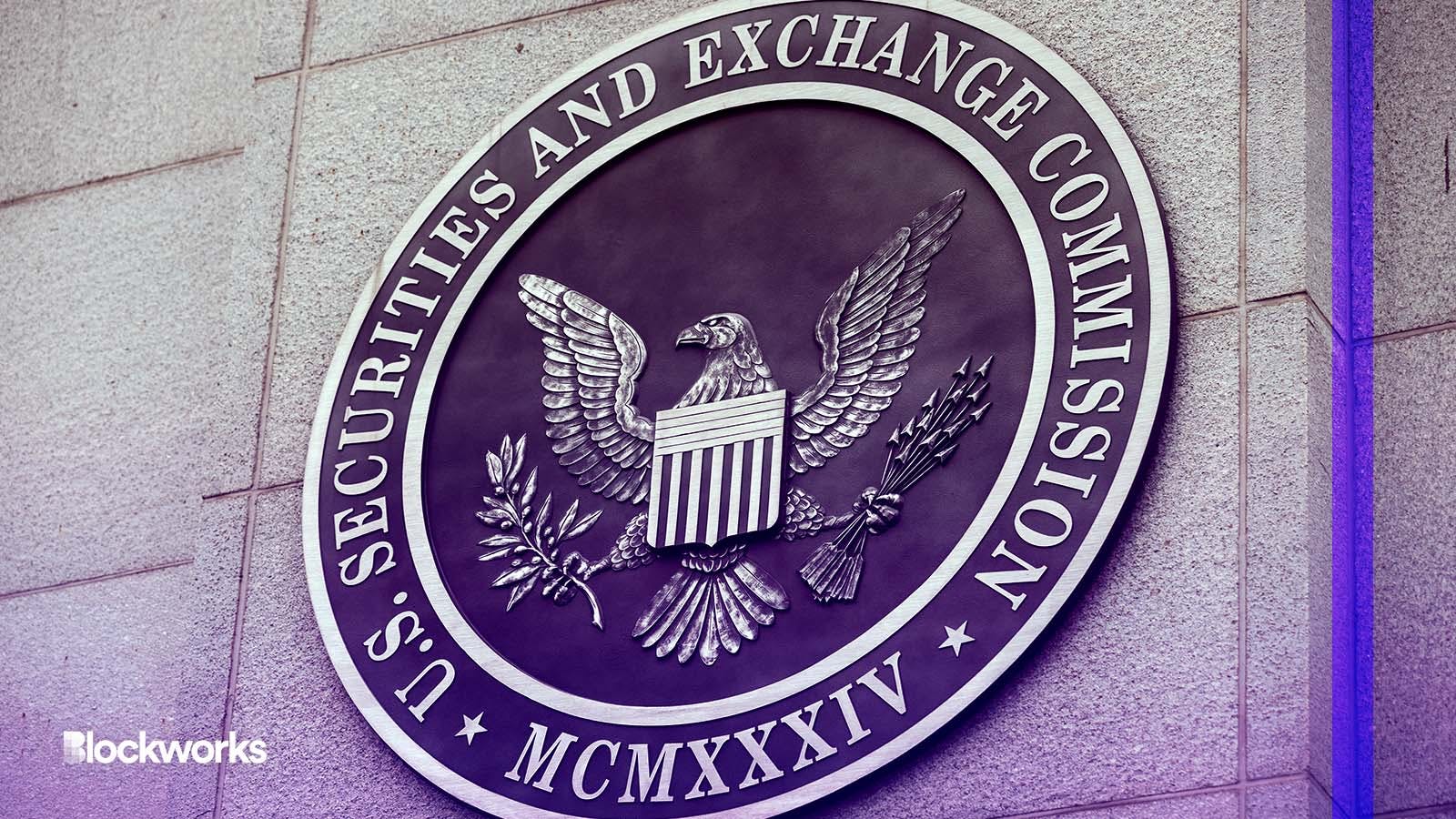SEC ‘discriminating’ against DeFi with proposed exchange definition: Blockchain Association
Last week, Paradigm pushed the SEC to ‘withdraw’ the proposal

AevanStock/Shutterstock modified by Blockworks
The Blockchain Association filed a second 14-page letter to the SEC’s proposed exchange definition change.
The SEC is seeking to expand the definition of exchanges to include certain DeFi and crypto firms, including decentralized exchanges, or DEXs.
In April, the SEC reopened the comment period following a press release stating that it wanted to expand the definition to cover DeFi. The comment period ends on Tuesday, June 13.
“The reopening release reiterated the applicability of existing rules to platforms that trade crypto asset securities, including so-called ‘DeFi’ systems, and provides supplemental information and economic analysis for systems that would be included in the new, proposed exchange definition,” the SEC said in a statement.
The Blockchain Association wrote, “The SEC claims that its Proposal is ‘technology neutral,’ but in consistently ignoring the unique challenges that persons using or providing access to Decentralized Protocols face in complying with the Proposal, the SEC is effectively discriminating against this specific type of technology.
“The SEC is explicit that the burden will be greater for companies who rely on distributed ledger technology and has even acknowledged that some players will be forced out of business due to their inability to meet the newly imposed registration requirements.”
The Blockchain Association also brought up concerns about fair notice — which requires agencies to provide “fair warning” of conduct required or prohibited by regulated parties — in the proposal.
“The rule change is vague and ambiguous, and the range of activities that may be captured within its scope are not yet fully fleshed out,” the association argued.
“Instead of crafting fit-for-purpose rules that recognize the unique nature of decentralized protocols and related entities, the SEC expands its jurisdiction beyond the limits originally set by Congress, while raising serious constitutional and APA concerns. This is the latest step in the Commission’s campaign to ban crypto in the U.S,” Kristin Smith, CEO of the Blockchain Association, said in a statement.
There’s also an argument to be made that the SEC’s proposal violates the Administrative Procedures Act (APA), which guides and governs how government agencies develop and issue regulations.
“There’s language in the proposal itself that basically says that the SEC believes that DeFi is already covered by the law. And they can’t put forth a new interpretation of current law that vastly expands what the current law says…without going through proper notice and comment procedures,” Marisa Coppel, policy counsel for the Blockchain Association, told Blockworks.
“So even though they’re going through that notice and comment now with this proposed rule, their statement in the proposal itself could be considered an APA violation and doesn’t put like those captured under this proposal unfair notice that the law already applies to them.”
Other crypto firms including Paradigm, the DeFi Education Fund and even Republicans on Capitol Hill have responded to the proposed change with criticism.
“The upshot of this technological reality is that holding DeFi protocols to the requirements of the regulatory regimes governing national securities exchanges and ATSs would result in their de facto expatriation from the United States. DeFi is rapidly gaining trading market share in crypto assets, especially after recent and high-profile fraud and compliance issues at leading centralized and intermediated non-U.S. crypto asset exchanges,” the DeFi Education Fund wrote.
Last week, Paradigm said, “We write to request that the Commission withdraw its proposed redefinition of ‘exchange’ and begin its consideration of how to adapt its regulations in the DeFi context anew — after rigorous economic analysis, genuine, broad engagement with the industry, and a close look at the limits of its statutory jurisdiction.”
Tavonia Evans, on behalf of the National Policy Network of Women of Color in Blockchain, wrote, “not all DEXs trade crypto for fiat currencies. Some DEXs primarily deal with the exchange of crypto assets, including stablecoins. The proposed rule does not provide clear guidelines on how it applies to DEXs that do not facilitate crypto-to-fiat transactions.”
Republicans from the House Financial Services Committee filed their own letter to push the SEC to withdraw the proposal.
“Given the goals of this Proposed Rule, it is clear that Chair Gensler is using this proposal to push his own personal views regarding digital assets. Chair Gensler has previously made statements on his own behalf claiming that DeFi exchanges are essentially equivalent to traditional intermediaries in financial markets even if they call themselves something different,” they wrote on June 13.
Get the news in your inbox. Explore Blockworks newsletters:
- The Breakdown: Decoding crypto and the markets. Daily.
- 0xResearch: Alpha in your inbox. Think like an analyst.






